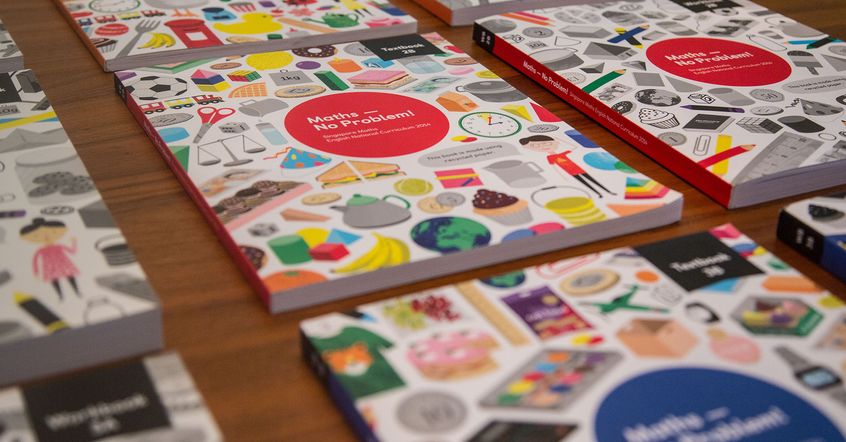Why Every Child Needs a Textbook
Can you imagine studying Shakespeare, Dickens or Shelley without having the physical book for reference? How about trying to pull apart the theories of quantum physics without the text and diagrams in front of you to decipher? Sounds ridiculous doesn’t it? So why is it that a whopping 10 per cent of schools believe the textbook approach is not right for them, while only 26 per cent of schools have a generally positive attitude to using textbooks in the teaching of mathematics?
Financial pressures and the desire to cut costs are often cited as the reason to abandon the use of individual textbooks in maths teaching, with many schools preferring to have children sharing books or even project text onto a whiteboard. However, research shows that without an individual textbook, children fail to interact with the text to the same level as those who have access to their own copy. This delivers poorer results in assessments and less willingness to continue with mathematics in further education. Is it really not worth investing in this critical resource?
Why are we failing our children in the fundamental teaching of mathematics in so many of our schools? Why do we deem the teaching of English and History more worthy of financial investment?
From my time in the classroom, the evidence becomes clear – when you deny a child a book of their own, the benefits of reading are diminished. Just like English, Mathematics is a language with a vocabulary and conventions that need to be mastered. As with any language, the learning is in the talking, the reading and the writing to achieve mastery. By having access to their own textbook, every student can reflect on what they’ve heard in the classroom and see how it is written down. As an adult, how many times have you tried to read instructions with a partner or family member and said ‘give them here’ and read them yourself, at your own pace, taking in the information? It’s to the benefit of all learners to absorb information through the written word.
“… in mathematics it is so common that our children never get to read other writers. The lack of reading is one documented reason why children are not doing well in mathematics.”
– Dr Yeap Ban Har
Just as we read novels from writers whose skills surpass our own to help us improve, a good mathematics textbook enables the learner to develop their mathematical understanding. Even when used during group work, reading a book is an individual activity and having a book each enables students to fully immerse themselves in the learning. For children forced to share a textbook, the dominant child will often drive the pace, meaning their partner may miss out on vital learning. By having their own textbook, each and every child has the opportunity to work through the examples at their own pace as well as flick back and remind themselves of what has been covered previously and review what will come next.
Having watched younger children interacting with their textbooks, the advantages are obvious. I have witnessed children count and circle the images on the page and trace words with their finger. Indeed, recent evidence has shown that children who are allowed to trace problems with their fingers can improve their maths learning. Though not as obvious from my observations, using a maths textbook is no less of an interactive experience for older children too.
In my experience, children are not able to interact with the text in the same way if they are forced to share a book or view a whiteboard projection. I have also seen the use of individual textbooks benefit teachers in their ability to assess learning and engagement on a child-by-child basis. Additionally, maths textbooks are part of the national education agenda with the Department for Education funding schools to trial textbooks in the Maths Hub Textbook Project, and more recently announcing £41m maths funding for schools, including the use of high-quality textbooks.
So, why are some schools still resistant to the use of textbooks in mathematics learning? Maybe it’s a lack of understanding of the benefits, or possibly funding issues. Whatever the cause, we can’t sit back and curtail our children’s capacity to learn. Let’s give them all the tools they need to become maths masters. Every child deserves a chance, why deny them a textbook?
